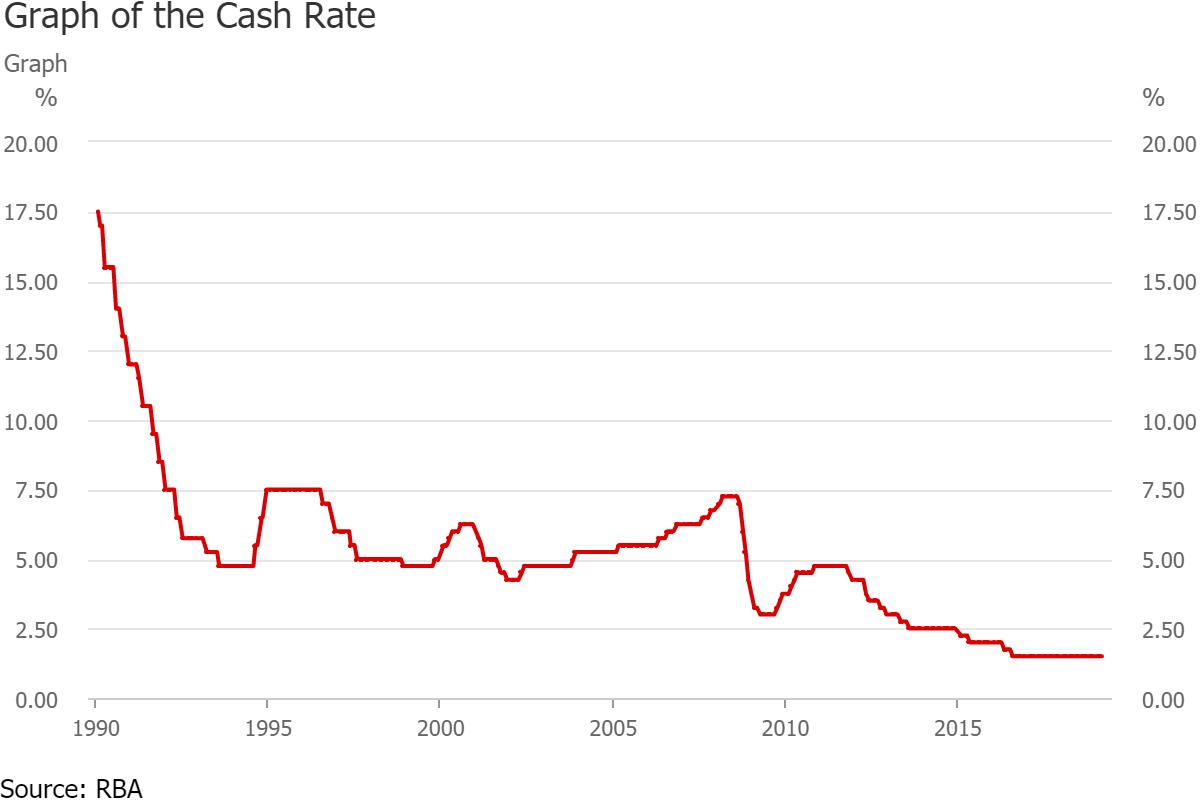Just over two weeks since Westpac’s shock forecast, NAB Chief Economist Alan Oster today said NAB has “pencilled in” 25 basis point cuts from the Reserve Bank of Australia (RBA) for July and November, taking the nation’s cash rate to a new record low.
“[Economic] Growth appears to have lost significant momentum, placing at risk further improvement in the labour market at a time when inflation poses little constraint on policy and financial stability risks have abated,” Mr Oster said.
“We see the timing of a rate cut as very data dependent; any deterioration in the labour market would lead to cuts and this could happen earlier than the financial market currently anticipates.”
Westpac’s forecast also predicted a 25 basis point cut in November, but it marked August, rather than July, as the other rate cut month.
These forecasts mark a sharp turnaround in sentiment surrounding the RBA cash rate.
Until recently, the vast majority of economists had predicted that the next movement in the cash rate would be up, not down.
The RBA Governor Philip Lowe, who had also long insisted that Australia’s central bank would look to raise rates in the future, last month admitted there was an even probability between the cash rate going up or down.
Australia’s cash rate has remained on hold at 1.50% since it was cut down from 1.75% in August 2016.

Mr Oster said the RBA’s outlook that unemployment would fall and wages (and subsequently, inflation) would gradually rise looks “increasingly in doubt”.
“With monetary policy being
“It is possible that further policy adjustment will be required in 2020.”
But Mr Oster said there were a couple of developments that would allow the RBA to keep interest rates on hold.
“Chiefly, if the unemployment rate remained low – or declined further – in spite of ongoing weak consumption growth and the downturn in housing construction. That seems unlikely to us,” he said.
“Substantial fiscal stimulus in the upcoming Budget would also be helpful, as would a sustained reduction in short-end funding pressures faced by lenders.”

Ready, Set, Buy!
Learn everything you need to know about buying property – from choosing the right property and home loan, to the purchasing process, tips to save money and more!
With bonus Q&A sheet and Crossword!



 Harry O'Sullivan
Harry O'Sullivan


 Harrison Astbury
Harrison Astbury
 William Jolly
William Jolly

